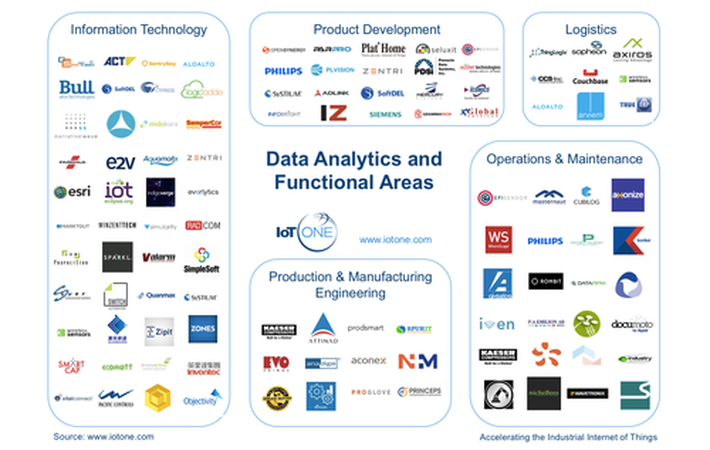
Published on 01/10/2017 | IoT Index
IoT ONE features a total of 768 vendors related to Data Analytics, out of which half of them are related to Information Technology.
Kevin O'Marah, Chief Content Officer from SCM World, writes that while big data analytics is the biggest amongst disruptive technologies, it's also the haziest in terms of what it really means to supply chain.
"In fact, its importance seems more to reflect the assumed convergence of trends for massively increasing amounts of data and ever faster analytical methods for crunching that data. In other words, the 81percent of all supply chain executives surveyed who say big data analytics is ‘disruptive and important’ are likely just assuming it’s big rather than knowing first-hand," he writes.
But the thing is, no matter if people know Big Data first hand, it is undeniable that more and more companies are exploring this option to see how it can maximize their profit further.
IoT ONE recorded 259 case studies on increasing adoption of predictive analytics in asset maintenance across various industries, such as railways and manufacturing - highest number of case studies among other functional areas.
Predictive analytics is a process of using statisti- cal and data mining techniques to analyze historic and current data sets, create rules and predictive models and predict future events.
A report by Cognizant features several business cases brought about by predictive analytics, which you can read more about here.
Andrew Kusiak, Professor and Chair of Mechanical and Industrial Engineering Department at The University of Iowa, writes, "Big data will make its mark on technological developments in this century. It will play a key role in shaping the design of materials, products, systems, and innovations from heavy equipment and energy industry to avionics and healthcare industry. Data may well become as powerful an economic engine as the steam engine once was. Data may reconfigure industry and businesses. Additive manufacturing factories may be built next to hospitals to manufacture various supplies, and new industries may be created in the spirit of digital manufacturing."
Sensors versed in fluids, thermal, or mechanical principles offer a promising avenue for data science applications. A large segment of mechanical engineering focuses on domains such as product design and development, manufacturing, and energy, which are likely to benefit from big data.